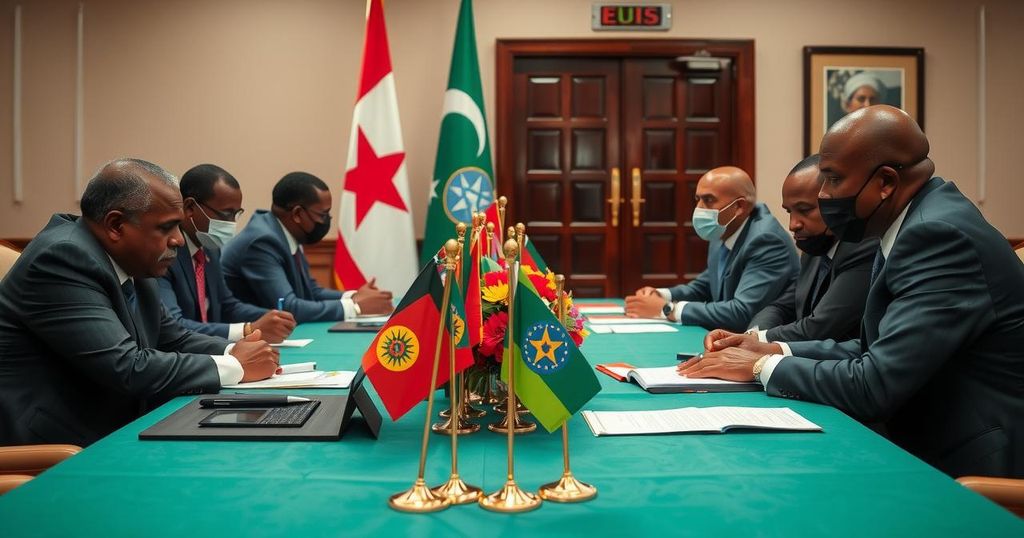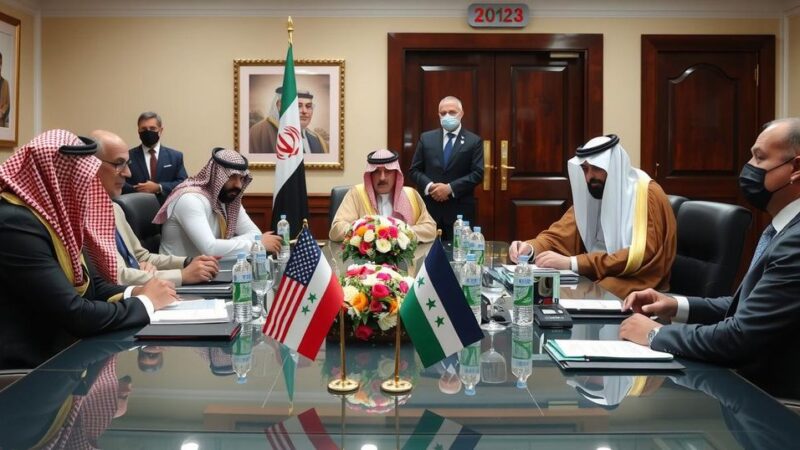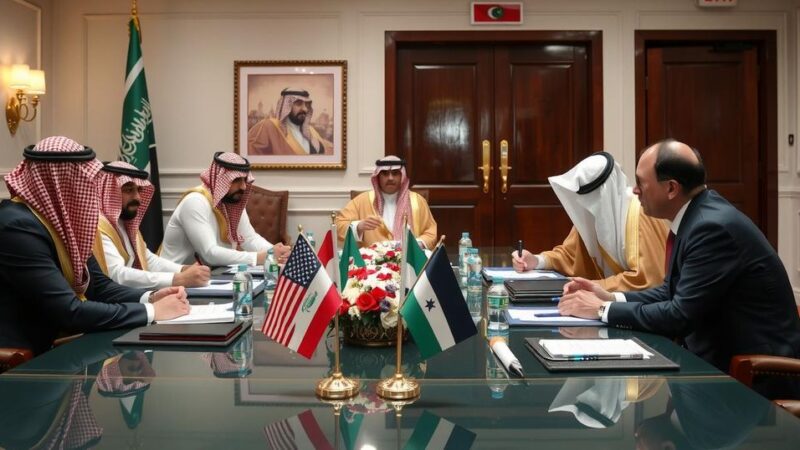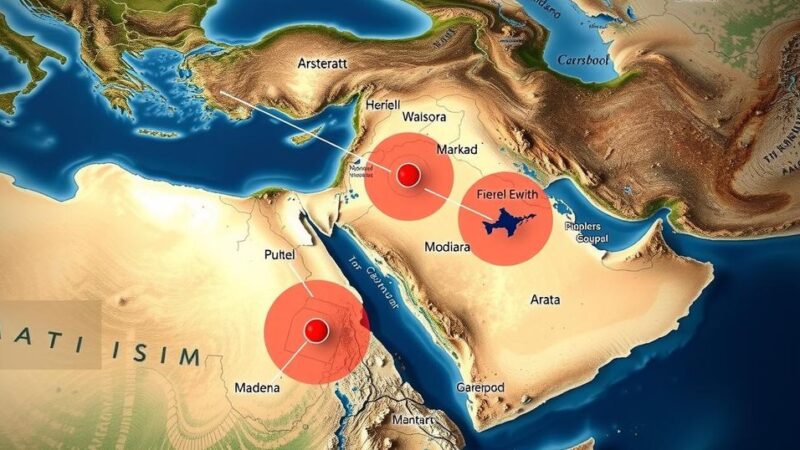Somalia’s President Hassan Sheikh Mohamud will visit Ethiopia to reinforce a recent peace agreement aimed at easing tensions in the Horn of Africa. This visit follows a controversial agreement between Ethiopia and Somaliland that escalated grievances with Somalia. Although efforts for cooperation are underway, critical issues regarding maritime access and regional alliances against Ethiopia’s influence remain unresolved.
Somalia’s President Hassan Sheikh Mohamud is scheduled to visit Ethiopia on Saturday, as confirmed by his office, amidst ongoing efforts to stabilize relations following a recent peace agreement aimed at reducing tensions in the Horn of Africa. Ethiopia, a landlocked nation, has experienced historical grievances with its neighbors, particularly Somalia, fueled by its pursuit of maritime access.
Tensions escalated last year when Ethiopia signed a controversial agreement recognizing the independence of Somaliland in return for access to a port on the Red Sea, angering Somalia. However, a new peace accord, facilitated by Turkey, was established last month between President Mohamud and Ethiopian Prime Minister Abiy Ahmed.
President Mohamud’s visit to Addis Ababa has been positioned as a continuation of the spirit of the agreement reached in Ankara, emphasizing a newfound cooperation between Somalia and Ethiopia. The statement from his office highlighted that this visit signifies a new chapter in bilateral relations.
Despite these developments, numerous issues remain unresolved. Turkish President Recep Tayyip Erdogan indicated that the recent peace deal might grant Ethiopia some level of sea access, yet the details of this arrangement are still unclear. Additionally, the status of the agreement between Ethiopia and Somaliland remains uncertain, contributing to lingering tensions in the region.
These tensions were further exemplified during a recent meeting in Cairo, where Somalia’s Foreign Minister Ahmed Moalim Fiqi conferred with his Egyptian and Eritrean counterparts. Their discussions highlighted a regional alliance formed to counter Ethiopia’s growing influence, with Egypt’s Foreign Minister Badr Abdelatty asserting, “The Red Sea and its security is subject only to the will of the countries on its coast… it is absolutely unacceptable for any country not bordering the Red Sea to have a presence.”
The aforementioned meeting follows a summit held in Asmara in October, which solidified ties among Egypt, Eritrea, and Somalia. Subsequently, these shared concerns have propelled Egypt and Somalia into closer military cooperation, demonstrated by the involvement of Egyptian troops in the recently launched African Union Support and Stabilization Mission in Somalia (AUSSOM), aimed at combating Somali Islamist insurgents.
The geopolitical landscape of the Horn of Africa is characterized by complex interactions among neighboring countries, with historical grievances impacting relations profoundly. Ethiopia’s need for access to the sea has long created tension with neighboring Somalia, especially following Ethiopia’s dealings with Somaliland, a breakaway region. The situation has been exacerbated by regional alliances forming in response to perceived threats, particularly regarding military presence and security interests in the strategic Red Sea area. Recent diplomatic engagements, notably with Turkish mediation, aimed at fostering peace, underscore efforts to navigate these fraught relations amid broader regional instability.
In summary, President Hassan Sheikh Mohamud’s impending visit to Ethiopia reflects ongoing diplomatic efforts to alleviate regional tensions following the recent peace agreement facilitated by Turkey. While there are hopeful signs of cooperation between Somalia and Ethiopia, significant challenges and disputes, particularly regarding access to the sea and the implications of Ethiopia’s partnership with Somaliland, continue to loom large. The evolving dynamics are further complicated by a new alliance forming against Ethiopian aspirations, emphasizing the ongoing volatility in the region.
Original Source: www.citizen.digital







